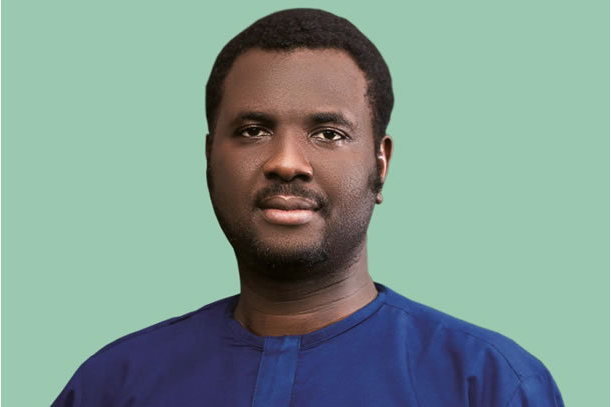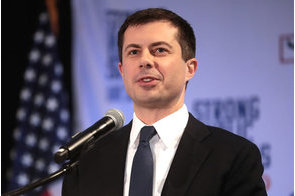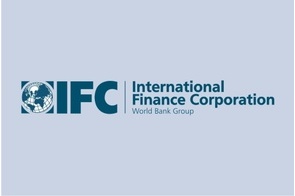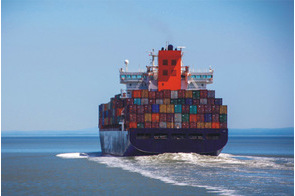Tayo Bamiduro: How MAX is driving sustainable mobility across Africa

Summary
We need to transform the people part of our transport infrastructure in Africa.
In this interview, Tayo Bamiduro, Co-founder and CEO, MAX, speaks with Jide Akintunde, Managing Editor, Financial Nigeria, on the outlook of electric vehicle (EV) adoption in Africa and how MAX is driving sustainable mobility across the continent.
Jide Akintunde (JA): In your 2023 outlook note, you said there are many tailwinds to EV adoption in Africa in 2023. What factors will make 2023, in your own words, ‘a breakout year’ for EV in Africa?
Tayo Bamiduro (TB): We are convinced that there are tailwinds that will continue to power the adoption of electric vehicles in the two-wheeler, three-wheeler, and even four-wheeler – that is, motorcycles, tricycles, and motor vehicles – space, respectively. One key trend we see in mobility across the world, and in Africa, is a gradual shift from outright cash purchases to rentals.
What is driving this trend is the rising rate of migration. If you are moving within a country, you may consider moving your car from one location to the other. But if you are moving across countries, and in many cases even within national borders, moving your car to your new location may not make sense. It may not even be possible to drive the same car in different jurisdictions. Therefore, people are shifting to what they can access, instead of what they can buy. There is a growing shift from the ownership model to the access model.
The key factors are accessibility and availability. This is even more important for EVs, which have a higher acquisition cost but last much longer. The electric vehicle engines have a longer lifespan than fossil-fuel-powered vehicles. EV engines in some cases have five or six main components; but a typical combustion engine vehicle – either powered by petrol or diesel – has thousands of parts that are fitted together. This complexity makes maintenance cost higher and the lifespan of the engine is reduced.
Broadly speaking, EVs are stimulating a shift away from ownership to rental by subscription, which is built on shared access. EVs deliver this model more efficiently than combustion engine vehicles do.
JA: How do you plan to have MAX capitalise on this outlook?
TB: At MAX, our goal is to become the go-to platform across the continent for anyone who wants to participate in the mobility sector. We estimate the mobility – and its services – industry to be worth up to $250 billion. The industry includes vehicle finance, vehicle leasing, vehicle insurance, charging points, etc. MAX’s goal is to become one of the dominant players in the industry. The way we will achieve this is by providing a set of integrated mobility services, which include EVs subscription, so that people can access the vehicles whenever they need them.
The key requirements from a user’s or customer’s standpoint in using shared resources are access and availability. Our goal is to have at least 10 million users within the next few years. Anybody looking for a vehicle subscription can download the app to apply.
JA: What is the range of the mobility solutions that MAX provides?
TB: In a nutshell, our mission at MAX is to democratise access to vehicles, using financing services – subscriptions or rentals – and service bundles. We provide subscriptions to allow customers to access vehicles, including electric vehicles, and a bundle of services including auto insurance, health insurance for users, life insurance, maintenance plan – which means as a customer you can have subsidised access at what we call MAX Authorised Workshops to high quality maintenance service. We are also authorised to provide vehicle licence. We make sure that our customers are compliant with government regulations in the cities and countries where we operate.
The range of financial solutions offered by MAX includes a digital wallet, which essentially operates as a bank account. We help our customers to set up their bank accounts to be used for their transactions, which enables them to make their subscription payment to MAX.
By ‘democratising’ access, we simply mean we are providing access for the mass market. This entails making access to vehicles affordable for the masses. In most cases, people buy cars and other vehicles by paying cash at the point of purchase. To have financing for vehicle purchase, you have to approach a bank for it. At MAX, we take that financing burden off our customers. We are providing vehicles for people, which they can pay for in daily instalments.
JA: Infrastructure bottleneck has continued to dog mobility in Africa. Whilst MAX tries to solve this issue for commuters, how is it trying to overcome the infrastructure conundrum in delivering its services?
TB: That’s a great question. When we talk about infrastructure at MAX, we are talking about two things. The first is people. For instance, we ask: “Who are the service providers in this industry and what are the challenges they face?” In Nigeria where we use the derogatory term “Agbero” to describe transport workers, and elsewhere in Africa, the mass participants in the transportation sector are denigrated. Nevertheless, these are the people that the majority of the population rely on for commuting.
Clearly, we need to transform the people part of our transport infrastructure in Africa. It is not all about building roads; it is also about the people operating the industry. Accordingly, MAX invests significantly in onboarding and training. We work very closely with commercial transport operators – including okada riders and keke riders, and we are working with both male and female drivers.
The other area of our infrastructure focus is technology. We have built an IOT (Internet of Things) platform which enables us to connect and monitor our customers – i.e., the transport operators – in real time. We know who they are; we know where they are; we know the speed at which they are moving; and if they violate road safety rules, we can remotely shutdown and deactivate those vehicles. The connected, IOT platform enables us full transparency into the activities of all transport operators that we have onboarded on our platform. This enables us to guarantee safety of all the commuters that use their services.
We aim to provide what we call ‘frictionless experience.” In Nigeria, there are too many frictions – or challenges – that people face. Financing is wahala – to use a local expression. Getting government permits and licences is a challenge. Even paying taxes comes with bureaucratic bottlenecks. And opening a bank account can be herculean. In the transport industry, getting a high-quality engineer to do your vehicle maintenance is a challenge. Countless vehicles have been ruined, with people maimed and lives lost in many cases, because of the shoddy maintenance work done by quacks.
MAX has been solving these issues one by one. We have high-quality approved workshops and trained technicians in all the places we operate. If you come on our platform and take a vehicle from us, you can be rest assured that it is high-quality parts and high-quality technicians that are used to maintain the vehicle. We are addressing the infrastructure problem with technology in all our locations in Nigeria and Ghana, while we are about to extend our services to Egypt, Uganda and Cameroon, as we are taking our solutions across Africa, country by country.
JA: You said my last question was great. I have to find a superlative to describe your response to it. My next question is this: How would you highlight the commitment of MAX to economic, social, and environmental sustainability in the countries of your operation?
TB: When looking at our development impacts, we try to map them to the Sustainable Development Goals (SDGs). The 17 SDGs identify the areas that countries of the world have to prioritise improvement for their people and the next generations. MAX is making very positive impacts in achieving at least seven of the goals. For instance, we are contributing in significant ways to achieving SDG 1: No Poverty. We are doing this by creating jobs and delivering financial inclusion. We are focused on how to get people to become productive or more so.
In Nigeria, we have about 4 – 5 million young people entering the labour force every year. But in the country, and in several countries in Africa, the unemployment rate among the young people (between 16 and 35 years old) is above 40 percent. It is not rocket science to know that security challenges have been concomitant with the high youth unemployment rate. However, MAX is at the forefront of creating employment for the youth in the transportation industry. As long as you pass our test, you will get a vehicle worth between N500,000 and N1.3 million almost overnight, without down payment.
Good Health and Well-Being is another SDG we are targeting. We provide health insurance as part of what we do, it is mandatory for subscribing to our services. We are also committed to SDG 5, which is Gender Equality. We are creating equal opportunities for both men and women. We do not practise or condone discrimination in any form or shape. Women champions are riding our two wheelers and also providing keke transport services.
We are also contributing to the sustainable wellbeing of our communities and facilitating the transition from fossil-fuel-engine vehicles to electric mobility. By 2030, it is estimated that the two and three-wheelers alone would contribute 1.7 gigatonnes of carbon emissions every year – equivalent to 50,000 Boeing planes flying all year – if we don’t start making the transition from fossil-fuel engines to electric engines today.
Nigeria is one of the most unequal countries in the world, confirmed by its 35.1 score in the Gini coefficient in 2022, where opulent areas are closely sighted from very poor neighbourhoods – like posh areas of the Island in Lagos overlooking the shanties of Makoko, or Lekki areas that are very close to the squalid conditions of the Jakande Estate area. Any unequal society is an unjust society. MAX is trying to bridge the wealth gap by creating opportunities for people to earn a living income, which is defined as sufficient income to afford a decent standard of living for all household members.
MAX is committed to SDG 1, 3, 5, 8, 9, 10, and 11.
JA: Is a fundraising round on your horizon this year?
TB: Historically, MAX has raised over $40 million in equity funding. We are on a huge mission, one that requires a lot of investment and collaboration with multilateral development agencies, financiers, and governments. In Nigeria, we have worked very closely and successfully with some state governments – like in Ekiti, Oyo, and Ondo states. To achieve our mission, it is imperative that we have the right partners and a lot of funding. During our last funding round, we were fortunate to onboard the Government of Rwanda through one of its investment vehicles.
This year, our goal is to bring on board additional partnerships and funding estimated at well over $100 million. Our work is very capital intensive, but the economic and social impact is also enormous.
Related
-
Worldwide transport activity to double, emissions to rise further - Report
The ITF Transport Outlook 2021 says that transport CO2 emissions can be cut by almost 70 per cent over the 2015-50 period ...
-
IFC, Kobo360 invite innovators to pilot sustainable cooling in Nigeria
Sustainable cooling technologies represent a fast-growing business opportunity with particular importance to emerging ...
-
Decarbonizing shipping: What role for flag states?
UNCTAD supports the Getting to Zero Coalition and promotes efforts to achieve sustainability, helping developing countries ...








